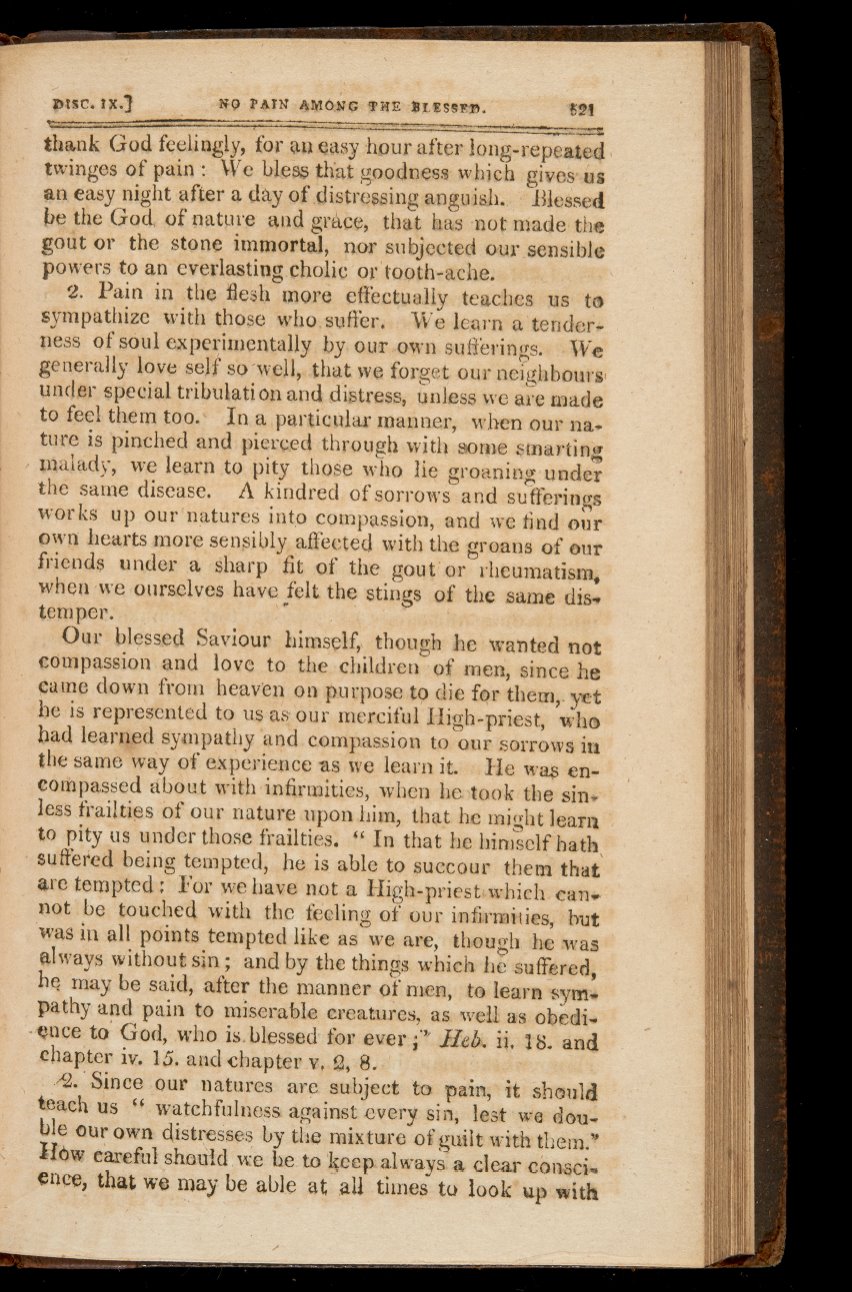

Pft
%t'.
NO
PATE
AMOWG
THE
InESSFD.
tal
thank God
feelingly,
for an
easy
hour after
long
-
repeated
twinges
of
pain We bless
that
goodness which gives
us
an
easy
night
after
a
day
of
.distressing anguish.
Blessed
be the
God of
nature
and
grace,
that
has
not
made-
the
goút or
the
stone immortal, nor subjected our sensible
powers
to an everlasting
cholic
or tooth-ache.
2.
Pain
in
the
flesh
more effectually teaches us to
sympathize with those
who suffer.
We learn
a
tender-
ness
of
soul
experimentally
by
our-own
sufferings.
We
generally
love
self
so
-well,
that
we
forget our neighbours
under special
tribulation
and distress,
unless
we
are made
to
feel
them
too.
In
a
particular
manner,
when
our na-
ture
is
pinched and pierced
through
with some .smarting
malady,
we
learn to pity those
who lie
groaning
under
the
same disease.
A
kindred
of
sorrows
and
sufferings
works up
our natures
into compassion, and
we
lind
our
own
hearts
more sensibly affected
with
the groans
of
our
friends
under a
sharp
fit
of
the
gout or rheumatism,
when
we
ourselves have
felt the
stings
of
the same dis-
temper.
Our
blessed Saviour himself, though
he wanted
not
compassion
and
love to
the children
of
men, since
he
came down from heaven
on
purpose
to die for them,.
yet
be
is
represented
to
us
as
our
merciful High- priest, who
had
learned
sympathy and compassion to
our
sorrows in
the same
way
of
experience as
we
learn
it.
He
was
en-
compassed
about
with
infirmities,
when
he'took
the sin-
less
frailties
of our nature
upon
him,
that
he
might
learn
to pity
us
under
those frailties.
"
In
that
he
himself bath
suffered being
tempted,
he
is
able to
succour
them
that
are tempted
:
For
we
have
not
a
High-priest-which cane
not
be
touched
with the feeling
of
our
infirmities,
but
was
in all
points tempted like as
we
are, though
he
was
always
without
sin
;
and
by
the things
which be suffered,
he
may
be
said,
after
the
manner
of
amen,
to
learn
sym-
pathy and pain to miserable creatures,
as well as
obedi-
ence
to
God,
who
is.
blessed
for
ever;''' lieb,
ii. 18.
and
chapter
iv. 15.
and
chapter
v.
k,
8.
-2.
Since
our
natures are subject to
pain,
it
should
teach
us
"
watchfulness against every
sin,
lest
we
dou-
ble
our
own
distresses
by
the
mixture of guilt
with them."
Hew
careful should
we
he to
]keep
-
always
a
clear
conscis
ence,
that
we
may
be
able
at
all
times
to look up with
._,

















